On the morning of September 18, the Ministry of Education and Training held the 2025 Higher Education Conference. Here, Mr. Nguyen Tien Thao, Director of the Department of Higher Education (Ministry of Education and Training), raised a number of issues that needed to be discussed and consulted. Specifically, this year there are 17 admission methods, but the admission method based on academic records accounts for 42% of admitted candidates. Meanwhile, the admission method based on high school graduation exam scores accounts for over 39% of admitted candidates. So should the first round of admission based on academic records be maintained or not?
At the conference, a survey on university admissions from 2026 was sent to delegates representing more than 200 schools.

Grade 12 students are interested in university admission methods, including admission by transcript.
PHOTO: NHAT THINH
"A modern education always encourages diversity in assessment"
Mr. Huynh Thanh Phu, Principal of Bui Thi Xuan High School (Ben Thanh Ward, Ho Chi Minh City), expressed his opinion that in the process of educational innovation, any policy related to university admissions directly affects millions of students, parents and teachers at the high school level. Therefore, when raising the issue of eliminating the admission method based on academic records, it is necessary to consider carefully from many aspects: education, society, economy and global trends. If the academic record review channel is eliminated, it is not simply a narrowing of an admission option, but also risks causing long-term consequences, going against the spirit of diversification and creating learning opportunities for the younger generation.
According to Mr. Phu, a modern education system always encourages diversity in assessment. Each student has different strengths: some excel in exams, some develop through persistent learning, and some demonstrate through creative activities. Therefore, maintaining multiple admission methods is a humane way to open the door to university. If only relying on the results of the high school graduation exam, which is very stressful and has many fluctuations, the opportunities of many students will be significantly narrowed.
"Reviewing academic records is not to "lower standards", but to look at students' abilities from a more comprehensive perspective. This is a necessary addition to the national exam, helping to classify, orient and create more fair opportunities. Eliminating the review of academic records means losing an important assessment channel, which goes against the spirit of open education," Mr. Phu analyzed.
Mr. Phu stated his point of view: The report card is not just a dry number, but the result reflects the whole journey of training at the high school level. Each recorded score is the crystallization of effort, of guidance from teachers, of the long journey of three years of high school. The recognition of the report card is the recognition of the efforts of both teachers and students.
"If we do not consider the transcript, we will invisibly deny the value of the entire teaching and learning process in high school, and only focus on one exam. That can easily lead to the mindset of studying for the exam, instead of studying for development. On the contrary, keeping the transcript will encourage students to study all subjects equally, study responsibly throughout the 3 years, instead of "concentrating" on intensive review", Mr. Phu analyzed.
In response to opinions that the review of academic records is prone to the situation of "beautifying" scores, Mr. Huynh Thanh Phu argued that we cannot use a local phenomenon to eliminate an entire humane policy. Instead of denying, we need to build a monitoring mechanism, make data transparent, and apply learning management technology to ensure honesty.
"Currently, the high school graduation exam is increasingly difficult, with a high level of differentiation. If we do not consider academic records, a series of average students will lose their opportunities and have to plunge into a spiral of extra classes and stressful revision. This not only creates mental pressure, but also increases social costs. On the contrary, considering academic records is the solution to reduce exam pressure and limit the "storm" of extra classes. It helps students be more confident, knowing that their efforts throughout three years are still recognized, and not just dependent on one exam," said Mr. Phu.

Admission regulations have a big impact on high school students.
PHOTO: NHAT THINH
Need to overcome the prejudice of "beautifying academic records".
Teacher Pham Le Thanh, Nguyen Hien High School (Binh Thoi Ward, Ho Chi Minh City), said: "There is a sad reality about the difference in scores when comparing high school graduation exam scores and high school transcript scores. The average score of a student's transcript is always higher than the high school graduation exam score. Especially, in some provinces, cities, and regions, this difference is very large. This raises concerns of universities about teachers being "lenient" when giving scores during the learning and testing process in high school."
However, Mr. Thanh said that if viewed objectively, excluding the "lenient" factor in scoring and being lenient in evaluating high school students, the transcript results are also a measure to evaluate the learning process of students in a relative way, respecting the efforts of students in 3 years of high school. Universities, depending on admission requirements, can use them for admission. For example, many top universities still use high school transcript results for admission, but there are strict conditions attached to ensure input quality. For example, member universities of Ho Chi Minh City National University use transcript scores in the priority method of university admission according to regulations, but students must be ranked as excellent students in specialized high schools, gifted high schools, pedagogical practice high schools or in the list of high schools announced by this university.
In addition, this teacher commented: "Many schools consider IELTS conversion without any standards, causing unfairness. IELTS should be an incentive score with a specific maximum bonus, depending on the achieved IELTS score."
A combination of methods is needed.
Mr. Nguyen Hung Khuong, Principal of Ernst Thälmann High School (Ben Thanh Ward, Ho Chi Minh City), said that in recent years, more and more universities have chosen to base their admissions solely on academic records. However, in reality, the scores in academic records do not always fully and accurately reflect the students' abilities. In some schools, teachers set high requirements so they give strict scores, while in other places it may be easier, leading to differences and inconsistencies in the assessment. This makes it difficult to ensure fairness and comprehensiveness in university admissions based solely on academic records.
Therefore, according to Mr. Khuong, there needs to be a combination of many methods such as academic records, high school graduation exams and competency assessments. Each method has a reasonable weight, to both record the long-term training process of students and ensure objectivity in the selection process.
Need for fairness in admissions
On the student side, Truong Chi Thanh, class 12A10, Nguyen Hien High School (Binh Thoi Ward, Ho Chi Minh City), shared: "I think this is a policy towards fairness because firstly, academic records can be affected by different scoring criteria between schools, even between teachers, regional differences, provinces... Meanwhile, the high school graduation exam is a common measure for all candidates across the country, the same exam, the same scoring scale and the assessment will be objective, fair, and of the right quality. This helps to minimize the differences between regions and schools.
Second, equality of opportunity through reducing the number of wishes forces candidates to research carefully and choose a school that is within their ability from the beginning, taking responsibility for their own choices. This limits the 'virtual' situation, helping those with higher actual scores to have a fair chance of being admitted to their favorite major, instead of having the results 'disturbed' by those who register too many wishes.
From there, Thanh believes that eliminating the consideration of transcripts will help students better define the subjects they will choose for graduation exams and focus more effectively.
Source: https://thanhnien.vn/nen-giu-hay-bo-phuong-thuc-xet-tuyen-dh-bang-diem-hoc-ba-185250918142132661.htm




![[Photo] Lam Dong: Close-up of illegal lake with broken wall](https://vphoto.vietnam.vn/thumb/1200x675/vietnam/resource/IMAGE/2025/11/03/1762166057849_a5018a8dcbd5478b1ec4-jpg.webp)


![[Photo] General Secretary To Lam receives Singaporean Ambassador Jaya Ratnam](https://vphoto.vietnam.vn/thumb/1200x675/vietnam/resource/IMAGE/2025/11/03/1762171461424_a1-bnd-5309-9100-jpg.webp)


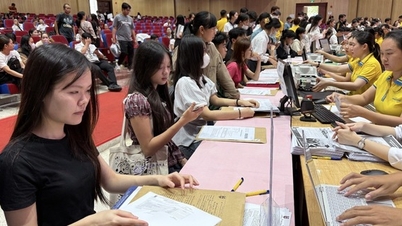


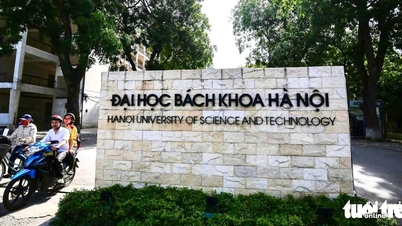

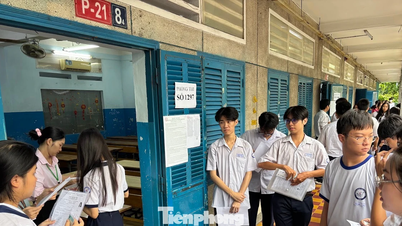







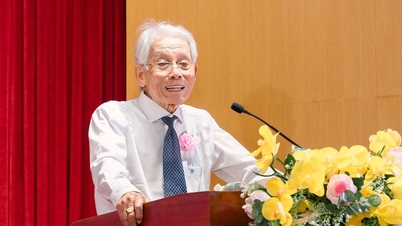








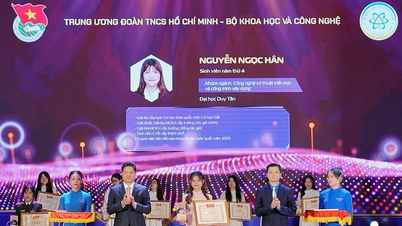














































































Comment (0)